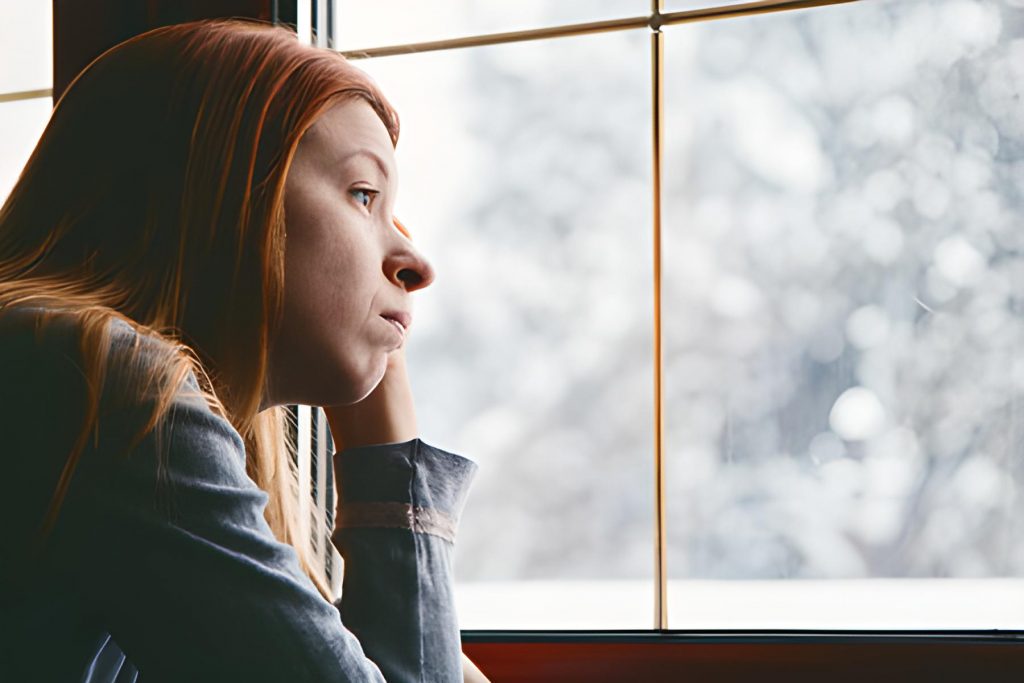Key points
- Winter depression is not the same as sadness.
- Less than 10% of the world population has this winter condition.
- You can take steps to keep your mood and motivation stable.
If you wake up and it seems that your mood is not the same as always and even if you think that it will soon pass or that you just need to distract yourself a little and thus solve it, the truth is that you do not feel like doing it, especially in December and January.
If your sadness began in the fall and extends into the winter months, reducing your energy and making you feel bad, it is surely winter depression. But don’t worry, you can learn to differentiate it from common disinterest, sadness, or boredom with the following test.
Mark with a ✓ the affirmations that match your personality this last month:
- You feel depressed most of the day or almost every day.
- You have recurring thoughts of death or suicide.
- You lost interest in activities you used to enjoy.
- You have low energy and/or difficulty falling asleep.
- You suffered changes in your weight or have lost your appetite.
- You feel lazy or restless with difficulties concentrating.
- You have a compulsion for foods rich in carbohydrates (bread, pasta, sugars).
- You feel hopeless, useless, and with feelings of guilt.
If you checked more than one box, you must see a specialist, especially if your sleep and appetite patterns have changed, if you turn to alcohol to feel comfortable or relaxed, you feel hopeless, or have suicidal thoughts.
Why do I feel this way? Is there any reason?
The specific cause of seasonal affective disorder is still unknown, however, it is important to point out some possible factors:
- Your biological clock (circadian rhythm): reduced levels of sunlight in the fall and winter can trigger the onset of winter seasonal affective disorder. This decrease in sunlight can upset your body’s internal clock and lead to depressive feelings.
- Serotonin levels: reduced sunlight can cause a drop in the level of this brain chemical (neurotransmitter) that affects your mood.
- Melatonin levels: the change in season can upset the balance of melatonin levels in your body, which influences your sleep patterns and mood.
What are the main risk factors?
This disorder is diagnosed more often in women than in men and in younger adults than in older adults.
Some mitigating factors that can increase the risk of suffering from it are:
- Family history: people with seasonal affective disorder are more likely to have blood relatives with this disorder or another form of depression.
- Have major depression or bipolar disorder: if you have either of these disorders, depression symptoms may worsen depending on the season.
- Living far from the equator: seasonal affective disorder seems to be more common among people who live far north or south of the equator. This may be due to less sunlight during the winter and because the days during the summer months are longer.
What happens if I don’t address this on time?
The signs and symptoms of seasonal affective disorder should be taken seriously. As with other types of depression, seasonal affective disorder can get worse and lead to problems if left untreated. Some of them can be:
- Social isolation.
- Problems at school or work.
- Alcohol and other substances abuse.
- Other mental health disorders, such as anxiety or eating disorders.
- Suicidal thoughts or behaviors.
Treatment can help prevent complications, especially if it is diagnosed and treated before symptoms get worse.
At ABC Medical Center’s Neurology Center, we can provide you with specialized care. Contact us!
Fuentes:
https://www.mayoclinic.org/es/diseases-conditions/seasonal-affective-disorder/symptoms-causes/syc-20364651
https://www.imss.gob.mx/prensa/archivo/201912/Comunicado-Conjunto-

